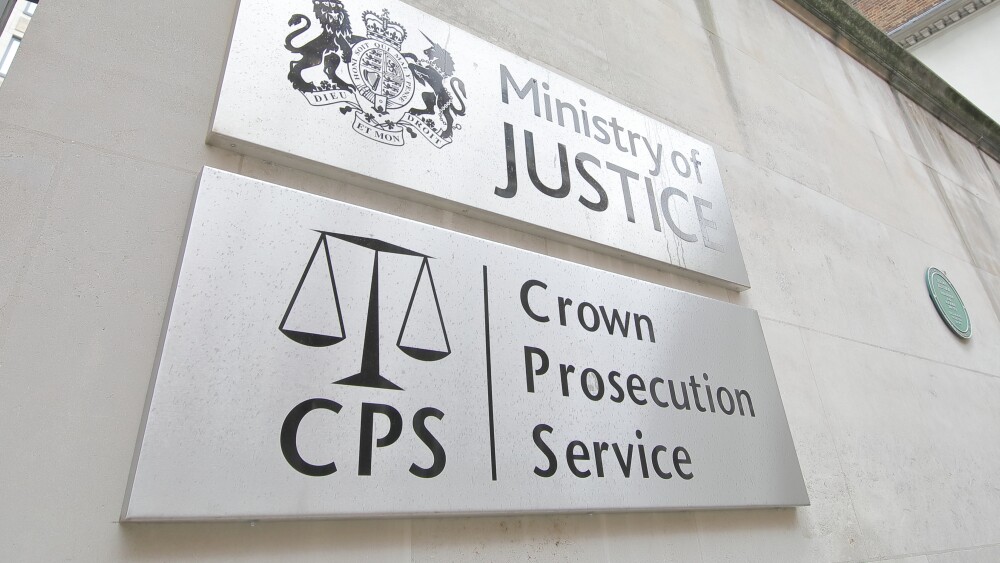Britain’s Crown Prosecution Service (CPS) has stymied the counter-Islamist movement by challenging the verdict of a U.K. court which cleared a free speech activist previously convicted of burning a Qur’an.
Would I have been prosecuted if I’d set fire to a copy of the bible outside Westminster Abbey? I doubt it.
The CPS is arguing that Hamit Coskun, a 50-year-old political refugee from Turkey, who set fire to the Qur’an outside the Turkish Embassy in London on February 13, 2025, committed an “act of desecration,” thus provoking Muslims to commit acts of violence.
In its appeal application to the High Court, the CPS is attempting to prove that Coskun’s behavior was disorderly, which “is no better illustrated than by the fact that it led to serious public disorder involving him being assaulted by two different members of the public.”
Burning a Qur’an is “a highly controversial act that has led to widespread international protests and condemnation, particularly from Muslim communities and governments, and has provoked numerous well-documented incidents of disorder and violence,” the appeal argued, condemning Coskun’s conduct as “an obviously provocative act.”
The CPS urged the High Court to overturn Coskun’s acquittal, stressing that his case “will undoubtedly be relied on in future public order cases involving inflammatory acts of desecration.”
Judge Rules Against Blasphemy Law
On October 10, the Southwark Crown Court dramatically reversed the earlier sentence of the Westminster Magistrates’ Court against Coskun, an ex-Muslim atheist whose mother’s family was killed in the Armenian genocide, Focus on Western Islamism (FWI) reported.
“There is no offense of blasphemy in our law,” Justice Joel Nathan Bennathan declared, noting that the right to freedom of expression “must include the right to express views that offend, shock, or disturb,” even if it involves burning a Qur’an, “an act that many Muslims find desperately upsetting and offensive.”
In his interpretation of sections 28 and 31 of the Crime and Disorder Act 1998, under which Coskun was convicted, Bennathan explained that “demonstrating hostility to a racial or religious group is not, by itself, an offense.” The law criminalizes “religiously aggravated” offenses as “motivated by hostility” based on the victim’s membership of a religious group.
In June, Judge John McGarva convicted Coskun under the 1998 Act, ruling: “I have found the offense religiously aggravated.” In his verdict, McGarva had explained that Coskun “believes Islam is an ideology which encourages its followers to violence, paedophilia, and a disregard for the rights of non-believers,” FWI reported.
Coskun told police he had decided to burn the Qur’an because “it incited people to terrorism and encourages the beheading of non-believers.” He was fined £240 with a statutory surcharge of £96. He appealed the sentence, asking: “Would I have been prosecuted if I’d set fire to a copy of the bible outside Westminster Abbey? I doubt it.”
During the Qur’an burning incident, Moussa Kadri, an Islamist, assaulted Coskun with a knife. A delivery driver kicked Coskun after he fell to the ground. Circuit Judge Adam Hiddleston, referring to Kadri as a “hitherto exemplary character,” gave the assailant a suspended sentence of imprisonment for 18 months, allowing him to escape prison.
Free Speech Advocates Warn Against Blasphemy Law
Speaking to FWI, Stephen Evans, chief executive of the National Secular Society, said that the CPS appeal “marks a renewed assault on free expression by prosecutors.”
“The CPS seems determined to establish a blasphemy law by the back door. Their approach effectively treats those who are targeted with violence for offending religious sensibilities as the wrongdoers. That is an alarming inversion of justice,” Evans warned.
“If this stance is allowed to stand, extremists will be handed a veto over free expression, and the principle of equality under the law will be seriously undermined. The High Court must reject this dangerous attempt to police ‘offence’ on behalf of religion,” he added.
Lord Young of Acton, General Secretary of the Free Speech Union, reasserted that overturning Coskun’s acquittal would send “a message to Muslim extremists that if they want to force non-believers to observe their blasphemy codes, all they need do is violently attack a blasphemer and he will then be guilty of a religiously aggravated public order offence.”
“The CPS is desperate for a backdoor blasphemy law,” a column in The Spectator opined.
A CPS spokesperson told FWI:
There is no law to prosecute people for ‘blasphemy,’ and burning a religious text on its own is not a criminal act—our case remains that Hamit Coskun’s words, choice of location, and burning of the Qur’an amounted to disorderly behaviour, and that at the time he demonstrated hostility towards a religious or racial group, which is a crime.
“We have appealed the decision, and the judge has agreed to state a case for the High Court to consider,” the spokesperson added.
“Should the CPS succeed in overturning Hamit’s acquittal, the UK will, in effect, have a Muslim blasphemy law. We must not allow that to happen,” Max Thompson wrote in a column for The Times.



